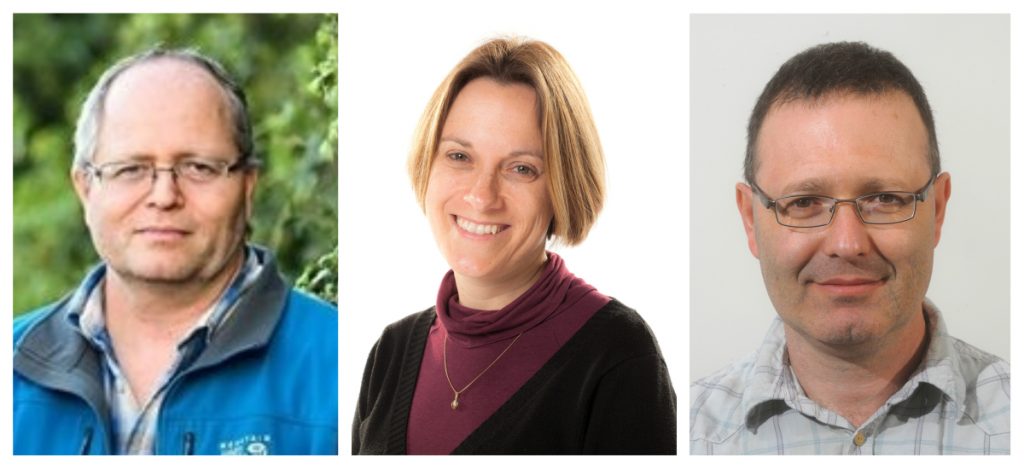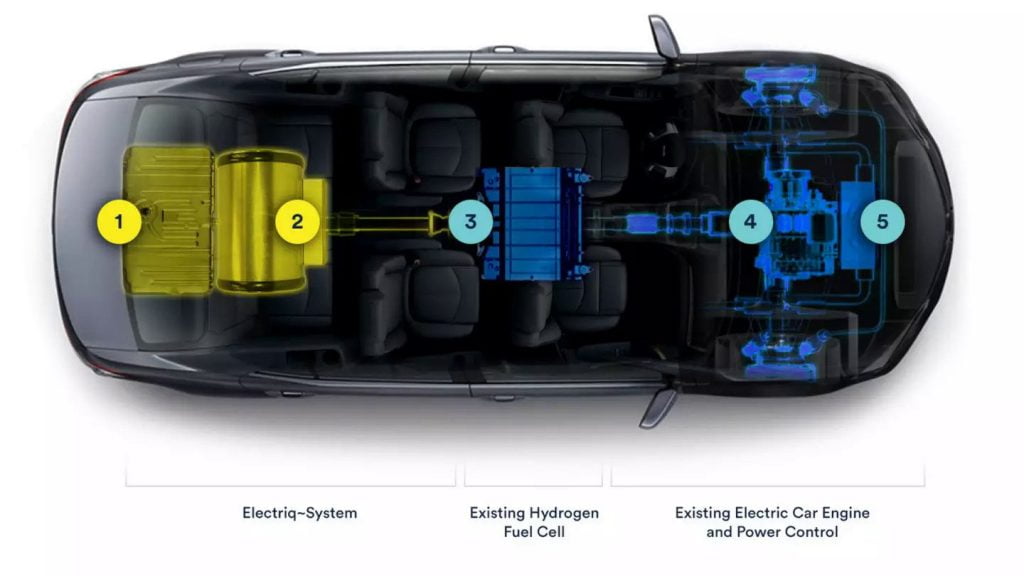Water could be the source for hydrogen-fueled cars one day in the near future, thanks to continued scientific breakthroughs such as a recent one by Israeli scientists.
Researchers led by Dr. Arik Yochelis and Dr. Iris Visoly-Fisher of Ben-Gurion University of the Negev and Prof. Avner Rothschild of the Technion-Israel Institute of Technology in Haifa, say they have identified a missing mechanism for an environmentally friendly way to split water molecules in order to produce energy without the need for an outside catalyst.
“It is a conceptual change in research and this can provide a new perspective in how technology in the future can be approached,” Yochelis, of the Blaustein Institutes for Desert Research and the Alexandre Yersin Department of Solar Energy and Environmental Physics at Ben-Gurion, tells NoCamels.
Although it’s been well-known for decades that production of hydrogen that does not emit greenhouse gases requires the splitting of water molecules (H2O) into the elements from which they are composed (two hydrogen atoms and one oxygen atom), that process has always demanded more energy than was gained back at the end of the process. As such, it has never been commercially viable.
SEE ALSO: At The Wheel: Why Israel Is A Driving Force Behind The Cars Of Tomorrow
Yochelis tells NoCamels that he and his fellow researchers believed there was “something missing” in how to go about splitting the water molecules in an energetically favorable way.
“In water splitting literature, people assumed they sufficiently well understood chemical reactions and mechanisms,” explains Yochelis. Much is indeed known but the knowledge is incomplete and sometimes the “devil is in the details,” he says.

From left: Prof. Avner Rothschild of the Technion; Dr. Iris Visoly-Fisher, and Dr. Arik Yochelis, both of Ben-Gurion University. Courtesy
After years of separate experiments, the research teams in BGU and Technion joined forces, hoping that three research teams were better than one. It proved a winning move.
The researchers were the first team to successfully reveal the fundamental chemical reaction present in solar power that could form the missing link to generate the electricity necessary to accomplish this process. That would allow the process to unfold naturally instead of relying on large amounts of man-made energy sources or precious metals to catalyze the reaction.
“Beyond the scientific breakthrough, we have shown that the photo-electrochemical reaction mechanism belongs to a family of chemical reactions for which Prof. Gerhard Ertl was awarded the Nobel Prize in Chemistry, about a decade ago. Our discovery opens new strategies for photochemical processes,” says Yochelis.
But Yochelis won’t say whether this finding is a watershed moment for energy just yet. For one, he wants the science community to test and retest their mechanism to ascertain that their finding is correct.
“It is still too early to know the science community’s reaction” to the new finding, says Yochelis. “We need to give it a year to allow people to learn.”
Yet, the discovery could have a significant impact on efforts to replace carbon-based fuels with more environmentally friendly hydrogen fuels.
Sign up for our free weekly newsletter
SubscribeCar manufacturers and startup companies across the globe are already seeking to develop hydrogen-powered vehicles that are considered efficient and environmentally friendly and that, unlike electric vehicles, allow for fast refueling and extended mileage.
In fact, the month of October churned out a number of new announcements in the renewable energy market, especially in Israel. After all, there are hundreds of companies and research groups working in this alternative fuel space.
“The State of Israel is at the forefront of the world’s smart transportation revolution. We have become a center of knowledge, research, industry and technology in the field of fuel substitutes and smart transportation, and a leader in international solutions and collaboration,” Prime Minister Benjamin Netanyahu said in a press release announcing this year’s winners of the Eric and Sheila Samson Prime Minister’s Prize for Innovation in Alternative Fuels.
Israeli chemistry researcher, Professor Doron Aurbach of the Department of Chemistry and Institute of Nanotechnology and Advanced Materials at Bar Ilan University, and Finnish chemical engineer, Dr. Lars Peter Lindfors, won the $1 million purse. It was the first time an Israeli researcher won the award since the inauguration of the prize in 2011.
Also making headlines this week, Australian-Israeli startup Electriq-Global announced that it has developed a fuel comprised of 60 percent water.
According to a company statement, the Electriq-Global system contains three key elements: the liquid fuel (Electriq-Fuel) which reacts with a catalyst (Electriq-Switch) to release hydrogen on demand, then the spent fuel is captured and taken back to a plant where it is replenished with hydrogen and water for re-use (Electriq-Recycling).
BGU’s Yochelis is “wishful” that the innovation sector will take the science forward, saying, “very often an advance in basic science leads to a technical leap.”
SEE ALSO: Vroom, Vroom: Israeli Tech Is At The Forefront Of The Newest Mobility Trends
Companies like Electriq-Global are trying to do just that.
“Our technology brings dramatic news of improvement in driving range, refueling time, and cost of fuel and changes the rules of the game in many fields, including transportation and energy storage,” Electriq-Global CEO Guy N. Michrowski said in the statement.
Viva Sarah Press is a journalist and speaker. She writes and talks about the creativity and innovation taking place in Israel and beyond. www.vivaspress.com
Related posts

Editors’ & Readers’ Choice: 10 Favorite NoCamels Articles

Forward Facing: What Does The Future Hold For Israeli High-Tech?

Impact Innovation: Israeli Startups That Could Shape Our Future





Facebook comments